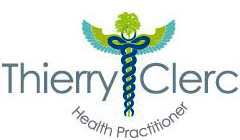This article was commissioned by a health organisation based in India, which promotes homeopathy to the wider public. India is one of the biggest centres of homeopathy and a large portion of the population relies on homeopathy and traditional herbal medicine as their main form of health support. Chickenpox can be lethal in India due to overcrowding and poor levels of hygiene.
Thierry Clerc practices in Cambridge (UK) as a clinical homeopath and a nutritionist. He is a regular contributor of several national and international health magazines.
Description of chickenpox:
Chickenpox is a viral illness due to the varicella-zoster virus (VZV). This virus is part of the herpes virus family. It usually spreads in the air or via an infected vesicle. It is possible to contract chickenpox from a case of herpes zoster and vice versa.
Signs and symptoms of chickenpox:
The Incubation period is from 14 to 21 days. In children the first sign is usually the appearance of an itchy rash. Adults may suffer a short constitutional upset and also have a more severe illness.
All herpes infection rashes appear in a similar way : The first appearance is of macules (patches of 5-10 mm), which stay stable over a period of 18-24 hours, and then go through stages of change, to papules, pustules and vesicles. The rash is more marked on the trunk and in areas such as the armpits. The mucous membrane of the mouth is also affected. New spots continue to appear throughout the illness.
Incidence:
It usually appears in the 5-15 years age group, more commonly under 10. Outbreaks are very common in schools, families, care centres etc. A person usually has only one episode of chickenpox in his or her lifetime. Second attacks are possible but rare. Chicken pox is considered very contagious (80-90%).
Possible Complications:
The most common complication is skin infections: the blisters and crusts are infectious and itchy. Scratching may lead to bacterial infection and scarring. In that case, there is discharge and redness around the pustules. In very severe cases, there is bleeding into the vesicles. For this reason, it is always important to clean the pustules and have a high level of hygiene. Sometimes, there is infection at other sites such as the bones, lungs, joints and the blood. Encephalitis and pneumonia can also occur (rarely in children but in 20% of adults). This is often a sign of a compromised immune system. Indeed, people who receive corticosteroids or immune-suppressants are more severely affected. Chickenpox is one of the biggest killers for immune-suppressed patients. The virus can lie dormant within the body and can cause a different type of skin eruption later in life called shingles. It occurs most often in the late winter and early spring.
Conventional Treatment:
Since 2006, a live-virus vaccine has been marketed in most countries. Symptomatic treatment by bathing and keeping the skin clean is important for prevention of skin infection. Antibiotics will be given if there is infection.
Homeopathic Support:
Every patient should be advised to use a blend of Hypericum & Calendula (HyperCal) lotion topically, to prevent infection. The following remedies can be considered during an outbreak or as preventative:
Rhus Tox is often the similinum and covers most of the symptoms: intense itching with restlessness mind and body. It is often the only remedy that is needed for chickenpox.
Antimonium Crudum can be tried if Rhus Tox has failed.
Some other remedies to consider:
Aconitum Napellus: Sudden violent onset, intense fever with restlessness and a fear of death.
Antimonium tart: This remedy will work very well if there is also a cough or bronchial issues, delayed or receding blue or large pustule like eruptions.
Belladonna: Very severe headache with hot flushed skin, drowsiness but inability to sleep.
Pulsatilla: Itching vesicles not relieved by scratching. Thick yellow discharge from the nose, eyes and ears. The patient craves attention and is very clingy.
Varicella Nosode: Can be administered as a preventative and is especially useful in children who are immune compromised.
Kali Mur tissue salt can also be administered as an adjuvant, especially for stressed, “burned out” patients.
Thierry Clerc, MARH, RHom, MSc
Registered Health Practitioner
Clinical Homeopathy, Bioresonance, Nutrition & Allergy

